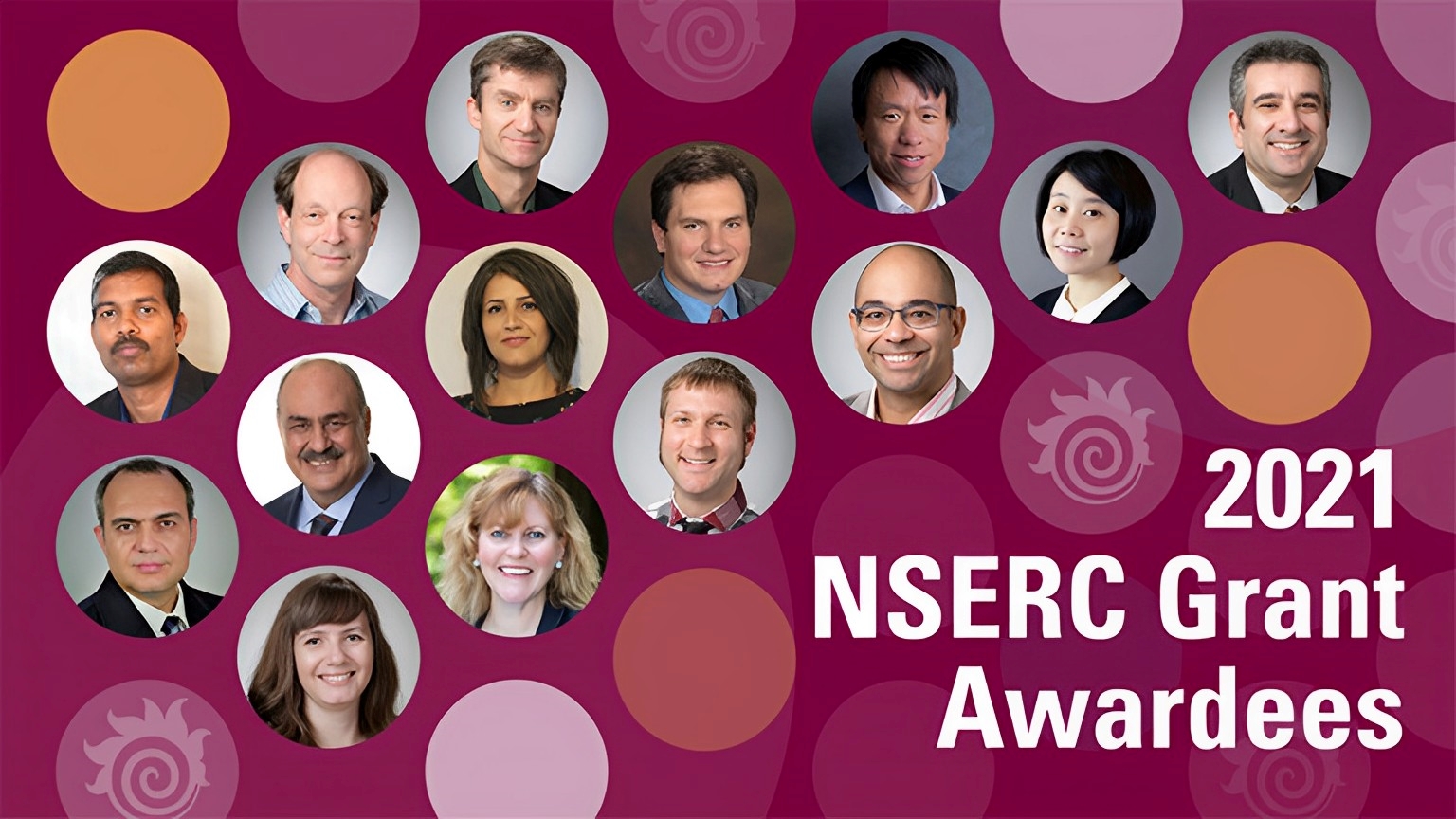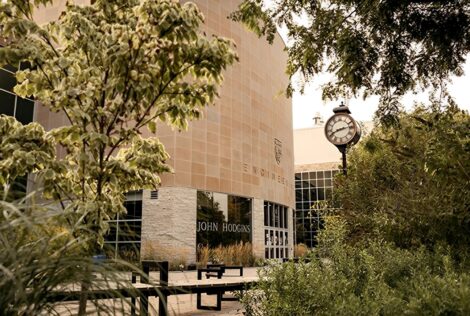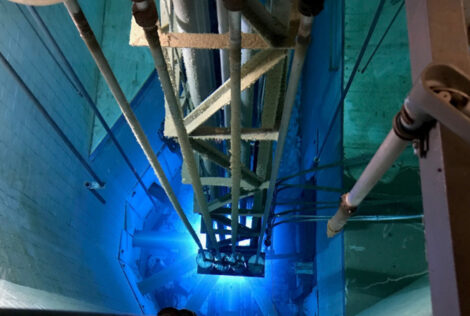

The Natural Sciences and Engineering Research Council of Canada (NSERC) has awarded 11 McMaster Engineering researchers through its Discovery research program, and three others have been awarded funding through the Research Tools and Instruments grants program (RTI) and Joint Canada-Germany Projects.
In total, the government is investing more than $310 million for some 3,400 new grants and grant extensions across Canada.
The total funding includes 1,960 new grants to researchers in a wide variety of natural sciences and engineering disciplines, including climate change, biology, mathematics and statistics, computer science and artificial intelligence, chemistry, biotechnology, and mechanical engineering.
These grants provide recipients with a stable base of funding and access to research tools and instruments so they can pursue a sustainable program of research, foster research excellence and provide stimulating environments for research training.
Learn more about the research from 14 McMaster Engineering faculty members who earned NSERC awards.
Discovery research program grants
Wael El-Dakhakhni – Professor, Civil Engineering/ School of Computational Science and Engineering
El-Dakhakhni is conducting research to develop digital twin technologies for more resilient cities and better decision making in response to floods and other climate hazards. His research will help protect human lives and infrastructure during extreme weather events resulting from climate change.
Susan Tighe – Provost and Vice-President Academic, Civil Engineering
Tighe is working to extend the life of paved roadways, ultimately reducing the need for re-paving and repairs. Extreme weather and freeze thaw cycles damage roadways; her research aims to make our roads more resilient to these effects.
Cancan Yang – Assistant Professor, Civil Engineering
Yang is working to investigate precast concrete components for Accelerated Bridge Construction (ABC), which offers tremendous savings in construction time compared to traditional cast-in-situ concrete. Through strengthening the resilience of precast concrete bridges that are exposed to both episodic (earthquake) and chronic (corrosion in the face of climate change) hazards, her research aims to unlock the potential of ABC in seismic areas of Canada that are also affected by climate change. Her research will contribute to advancing the state-of-the-art of precast concrete bridges for sustained serviceability and seismic safety.
Ali Emadi – Professor and Canada Research Chair in Transportation Electrification and Smart Mobility, Electrical and Computing Engineering / Mechanical Engineering
Through his research, Emadi aims to support the next generation of electric vehicles by designing power electronic systems that are more cost effective, efficient, and reliable. This will lead to higher-performance and lower-cost electric vehicles, reducing reliance on fossil fuels and mitigating climate change.
Babak Nahid-Mobarakeh – Professor, Electrical and Computer Engineering
The research Nahid-Mobarakeh is conducting focuses on developing Smart Integrated Electric Motor Drives that will propel future electric vehicles and operate aircraft systems that traditionally use hydraulics and pneumatics – with a view to fully electrified air transportation one day. These smart drives will be smaller and more resilient and reliable than existing technologies.
Ratnasingham Tharmarasa – Assistant Professor, Electrical and Computer Engineering
Tharmarasa’s research aims to advance safety and reliability in autonomous vehicles and other computer vision systems. He is working to optimize how data is received from a plethora of sensors, interpreted, and optimized in a perception module, and sent to either a human operator or fully autonomous control systems.
Adrian Kitai – Professor, Engineering Physics
Kitai is researching phosphor nanostructures that will have applications in next generation microLED display panels and solar collectors integrated into building windows. MicroLED displays are more efficient and have longer lifespans than current generation OLED and LCD technologies. This technology will also extend the useful life of photovoltaic building windows.
Maryam Aramesh – Assistant Professor, Mechanical Engineering
Aramesh is developing a new class of dual-functioning lubricants for reducing friction and wear for contact bodies under extreme loading conditions. Her research aims to reduce waste, extend the useful life of tools, and cut costs in manufacturing.
Gary Bone – Professor, Mechanical Engineering
Bone is pursuing research into the development of low-cost robots capable of working closely with people – particularly in a homecare setting for seniors and people with disabilities as well as industrial workplaces. With demand for home care projected to grow by over 3% per year until 2026, and growth of workers projected at 1% per year, affordable and safe robotics can help fill this gap.
Mohamed Elbestawi – Professor, Mechanical Engineering
Elbestawi is engaged in research to grow application and adoption of additive manufacturing technology – sometimes called 3D-printing – in aerospace and automotive industries. Advances in additive manufacturing presents opportunities for high-value component production across these industries and beyond.
Discovery Accelerator Supplements program
Cheryl Quenneville – Associate Professor, Mechanical Engineering
Quenneville is conducting research that will help develop improved devices and associated fracture limits to evaluate protective equipment for the defense sector. Her research is investigating injury risk from impacts to the upper limb and torso for both males and females, and how to best protect against severe, long-term injury.
Research Tools and Instruments grants program (RTI)
Nabil Bassim – Associate Professor, Materials Science and Engineering and Scientific Director, Canadian Centre for Electron Microscopy (CCEM)
Bassim’s research focuses on a high speed and high sensitivity electron backscattered diffraction detector for materials analysis.
Joint Canada-Germany projects on hydrogen technologies
Benzhong (Robin) Zhao – Assistant Professor, Civil Engineering
Zhao is working to optimize mass transport in proton exchange membrane (PEM) electrolyzers for efficient hydrogen production.
Thomas Adams – Associate Professor, Chemical Engineering
Adams is researching trans-Canada and trans-Atlantic distribution of bio-hydrogen using formic acid as the carrier.


